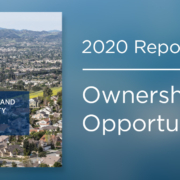Solving the Housing Shortage, and Houston Popular for Relocation
A few smaller items this week:
- WSJ: America Needs More Houses: The housing shortage is caused by a combination of zoning and financing rules and supply-chain constraints.
- Americans Leaving Older Cities for Greener Pastures. Houston dominates international in-migration among growing metros, but we’re not as strong of a domestic pull.
- Here’s exactly how much remote work is to blame for the surge in home prices.
“ A paper published this week by two California economists calculated that the mass shift to remote work accounted for 15.1 percentage points of the 24% increase in U.S. home prices between November 2019 and 2021.”
“There are lots of places in America with jobs and lower climate risks or jobs and racial diversity, but if you want all three, Texas will take care of you best,” The NYTimes noted in 2021.
“Many of us move to big cities and spend little time in nature — also not a path to happiness. A study by the economists Ed Glaeser and Josh Gottlieb ranked the happiness of every American metropolitan area. They found that New York City was just about the least happy. Boston, Los Angeles and San Francisco also scored low. The happiest places include Flagstaff, Ariz.; Naples, Fla., and pretty much all of Hawaii. And when people move out of unhappy cities to happy places, they report increased happiness.”
And a little humor, lol: “The data-driven answer to life is as follows: Be with your love, on an 80-degree and sunny day, overlooking a beautiful body of water, having sex.”
- From Wendell Cox: “The Australian Financial Review (the nation’s equivalent to the WSJ) ran a piece suggesting that housing may be the most important policy failure in the nation” (based on our URI/COU Demographia International Housing Affordability Survey). I’d flip that and say housing may be Texas’ and Houston’s most important policy success!
“All the research suggests housing is a critical determinant of well-being and good community functionality and has long been considered an essential part of the “Australian dream”… Econometric analysis has shown that in some places in Australia, planning restrictions are responsible for 67 per cent of the cost of housing.” (!!!)
- And here are the academic paper details behind that excerpt: Unhappy Cities. People are the least happy in some of America’s largest cities like NYC, LA, SF, Boston, and Chicago. Oddly, Dallas and Houston are not included, although Galveston scores surprisingly high (#16).
“Abstract: There are persistent differences in self-reported subjective well-being across U.S. metropolitan areas, and residents of declining cities appear less happy than other Americans. Newer residents of these cities appear to be as unhappy as longer term residents, and yet some people continue to move to these areas. While the historical data on happiness are limited, the available facts suggest that cities that are now declining were also unhappy in their more prosperous past. One interpretation of these facts is that individuals do not aim to maximize self-reported well-being, or happiness, as measured in surveys, and they willingly endure less happiness in exchange for higher incomes or lower housing costs. In this view, subjective well-being is better viewed as one of many arguments of the utility function, rather than the utility function itself, and individuals make trade-offs among competing objectives, including but not limited to happiness.”
Finally, a great little video tribute to Dr. Stephen Kleinberg at Rice University, who is retiring after an amazing 40 years of conducting the Houston Area Survey. Thank you, Stephen Klineberg.
This piece first appeared on Houston Strategies Blogspot.
Tory Gattis is a Founding Senior Fellow with the Urban Reform Institute (formerly Center for Opportunity Urbanism) and co-authored the original study with noted urbanist Joel Kotkin and others, creating a city philosophy around upward social mobility for all citizens as an alternative to the popular smart growth, new urbanism, and creative class movements. He is also an editor of the Houston Strategies blog.
Image: Houston Inner Katy BRT plan, via Wikimedia under CC 4.0 License.








